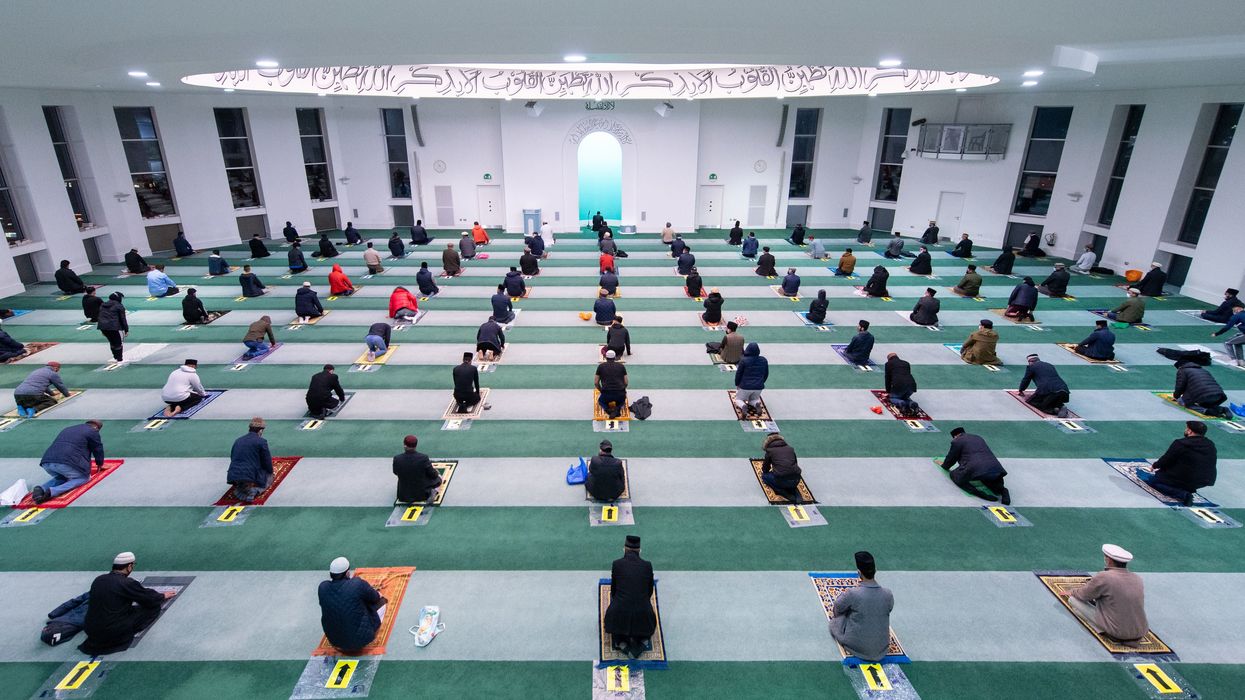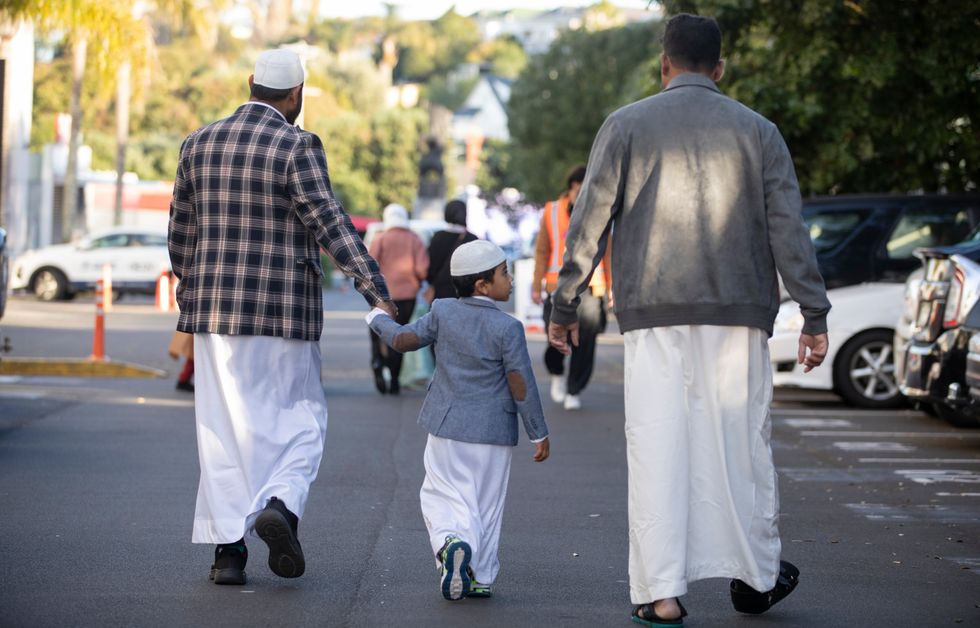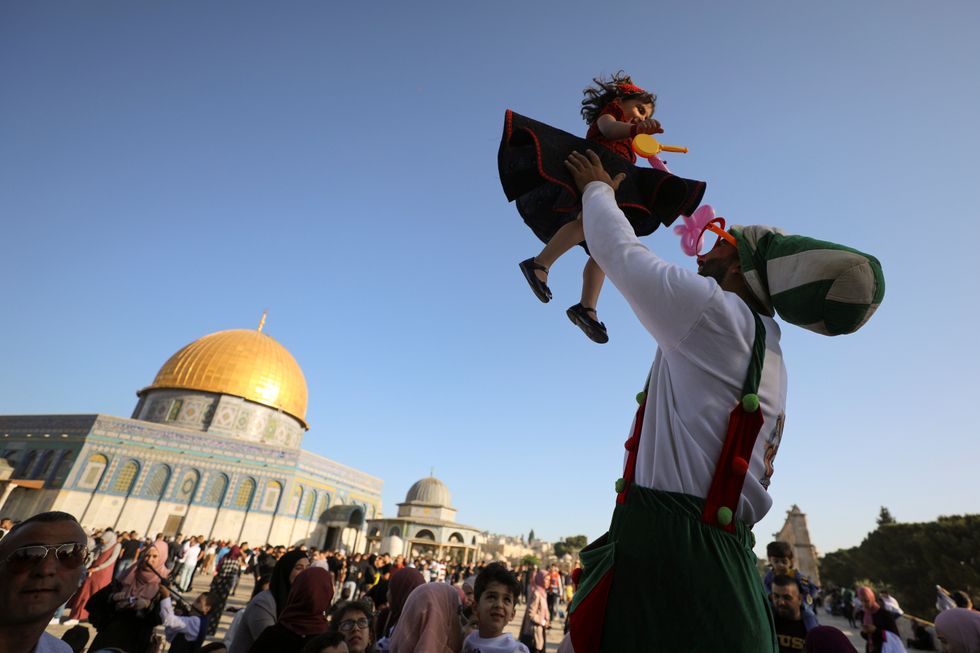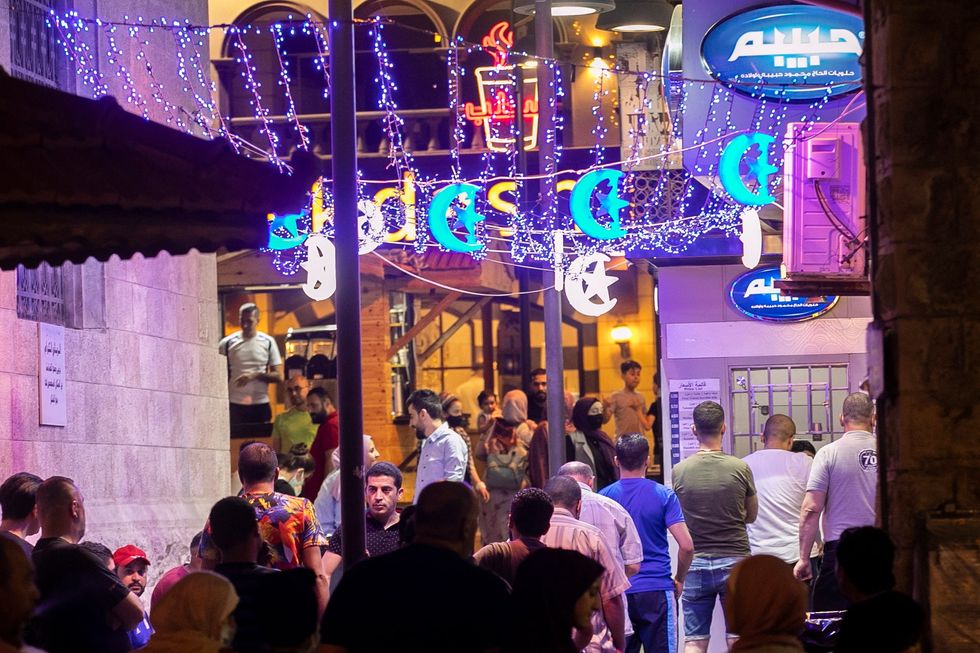Faiza Saqib
Jul 19, 2021

Worshippers observe social distancing at the Baitul Futuh Mosque, in Morden, south west London, on the final day of Ramadan
PA
What is Eid Al-Adha?
Eid Al-Adha, also known as the Big Eid, is celebrated by many Muslims across the globe. It’s a time to reconnect with the Muslim faith and is a symbol of hope for many.
Eid Al-Adha is typically celebrated the day after the Holy Hajj pilgrimage that many Muslims take during this time of year. Eid Al-Adha usually falls on the tenth day, in the final month of the Islamic Lunar calendar, also known as Dhu al-Hijjah.
Celebrations occur once the moon is sighted, following the completion of the Holy pilgrimage to Hajj.
What is the story behind Eid Al-Adha?
Eid Al-Adha is celebrated to remember and commemorate Prophet Ibrahim also known as ‘Abraham’ – devotion to his faith and God. Many Muslims believe that God tested Prophet Abraham to see his commitment and willingness towards his faith.
Prophet Abraham was commanded by God to sacrifice that of which he loves most, in this case it was his son. It is believed that the devil tried to steer Prophet Abraham away from his task, so he threw stones at the devil , which drove the devil away.
This is a ritual that still takes place on the Holy pilgrimage to Hajj, in which Muslims throw stones as a final ritual, also known as the Great Jamara. Seven stones are thrown towards this wall to keep the devil away from leading people astray.
Seeing Prophet Abrahams commitment, God then placed a ram in the place of his son instead, therefore his son remained unharmed. It was a test to see if Prophet Abraham (the same Abraham in Jewish and Christian scriptures) was really committed to the path of spirituality and if he would really obey the command God had given him.

That is why Eid Al-Adha is known as the Festival of Sacrifice. It highlights the important sacrifices many Muslims make during their day to day. From giving charity, to sharing a smile with another person, Eid teaches us to be at peace and sacrifice little things that lead us towards selflessness and awareness of one’s being.

One way of marking this special occasion is ‘Qurbani’, also known as ‘sacrifice’ where many Muslims choose to sacrifice an animal (usually a goat, sheep, cow or lamb) and often, this is given to family, friends and charity or is cooked for the evening meal with family and friends. This day of celebration is further marked by the congregation of prayer, which usually takes place on the morning of Eid.
Eid Al-Adha, just like Eid Al-Fitr, is celebrated by dressing up in new clothes and spending quality time with loved ones.
When is Eid Al-Adha 2021?

Eid Al-Adha has been announced to be on Tuesday 20th July, based on the calculations of the moon and was announced by the Saudi Arabia Supreme court earlier this week.
Can non-Muslims celebrate and How can I take part in Eid if I am not Muslim?
Everyone is welcome to celebrate! Islam is a religion of peace, kindness and openness. So everyone can join, dress up in new attire and enjoy the celebrations taking place.
If you have Muslim friends or co-workers, be sure to just wish them an “Eid Mubarak” or “Happy Eid”. You can get involved by dressing up or just acknowledging the celebration that many are partaking in around the globe.
Top 100
The Conversation (0)













